
Fly fishing is an incredibly exciting and relaxing hobby, but it isn't always 100% safe. In this article, we'll show the reasons why it can be dangerous and how to avoid major pitfalls. With this advice, you'll never have to worry about anything other than catching fish when you go fly fishing.
Usually, fly fishing is very safe as long as you have the correct equipment and understand the risks. With a sturdy rod and waders, as well as a hat, lotion, and water, your experience should be excellent. Surprisingly, though, fly fishing does come with certain dangers.
As you can tell, taking precautions is essential to ensure that you get the most from your experience. Therefore, understanding what action to consider is your best line of defense. Read on to learn more about our top tips on maintaining your safety while fly fishing in the US or around the world.
Fly Fishing Dangers
It might shock you to learn this, but more people die from fishing accidents and complications than any other mass participation sport. When you consider the different types of activities and how aggressive they are, this statistic proves the need to respect the water.
The most common issue that fly fishers encounter is waders that fill with water. Once this piece of equipment gets bogged down by fluid, it's almost impossible to move, making getting back to the shore challenging. This is particularly dangerous if you prefer to fish alone, and there is nobody to spot you as you enter the water. It's vital to remember that shorelines drop-off dramatically, and it only takes one-step to end up in a situation where the water line is above your waders.

Strong currents can make even the strongest swimmers look like amateurs, too. So, venturing out into the middle of a lake or river is risky with waders. Trying to fight against the tide is tough because currents are powerful and can quickly sweep you out into deeper water.
While fly fishing gear never appears overly dangerous, you can receive nasty accidents from sharp hooks that are designed to stick in the lips of big game. Considering the thrashing around, it's not hard to see how a hook might become lodged in any part of your body.
Fly fishing is worse than the majority of other forms of the sport due to the constant casting motion. This study reveals that ocular fish hook injuries, such as eyelid splitting and retrograde damage, happen due to fishing rods and hooks traveling at incredibly high speeds. But this can easily be prevented by wearing sunglasses that cover your eyes.
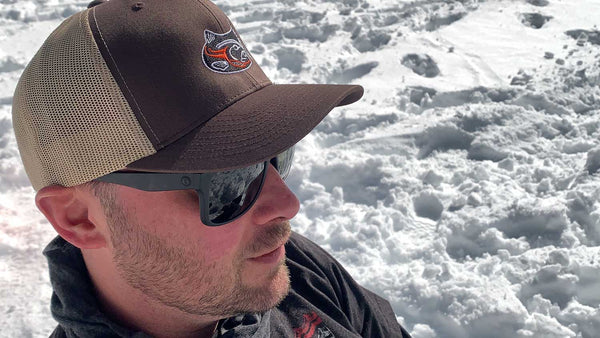
Dehydration is also a possibility if you don't come prepared. Why is staying hydrated challenging? It's because the average person requires up to six cups of water per day (around three liters) while resting. When you exercise and sweat, which happens regularly during a fly fishing session, it's possible to lose sixteen cups in one hour. That's almost a gallon of H2O in sixty minutes, and a fishing session can last for as long as six to eight hours. Stay hydrated and you will enjoy many hours of excitement in this sport.

In nature, bugs are everywhere. For the most part, pests aren't too annoying or dangerous if the weather conditions are okay. However, during the summer, mosquitoes are more ubiquitous than ever. Thankfully, only the females bite and pass on diseases and illnesses, yet there are still thousands of them in any given area. To be precise, there are 170 million insects for every person on the planet, meaning that around 1 in 300 is at risk of an allergic reaction. Plus, in the US, approximately 2,000 cases of malaria are diagnosed each year, and that's without taking snake bites into account, which can number up to 8,000 annually.
As scary as these numbers might look, this also can be easily remedied while using the proper preparations.
How To Fly Fish And Stay Safe?
Of course, it doesn't mean that you should never buy fly fishing flies and experience the therapeutic benefits of the sport because there are potential dangers. Fly fishing is similar to pretty much every activity in this sense. And, like you would do when playing football or ice hockey, you must maintain your physical health as much as possible.
If you're wondering what the best methods are, you'll find a range of our top tips underneath. Below, you'll find advice on how to combat everything from the water to pesky insects and the sun.
Filled Waders
Wading fly fishing gear is often required if you want to try and land the specimen fish that live in lakes and rivers. The reason for this is that going out into the water gives you access to the best spots, allowing you to cast into tight areas that aren't accessible from land. Also, getting into the water offers you extra control when you're fighting a fish. Being able to change angles and direction can be crucial as it prevents fish from breaking the line on snags.
Still, one false step might force water to overflow and fill your waders. There are a couple of ways to stop this from happening. The first is to always wear a wading belt. Make sure it is tight around your waist when you go out on the water as this will slow down the flow of water into your waders if you happen to fall in.
The second is a wading staff. Essentially these are canes that you can use to help you navigate the water and feel around for drop-offs so that you don't venture out farther than necessary.
Polaroid glasses are helpful, also. The tinted shades allow you to see through the glare on top of the water, again giving you the ability to see drop-offs before stepping off the edge.
Strong Currents
Waders aren't the only cause of drowning for fly fishermen and women. Powerful currents are a lot stronger than they seem from the bank. Unfortunately, the only way to tell the extent of the flow is to get into the water and fight against the tide. For those who prefer to fly fish, currents are problematic as trout and salmon live in the wild. Plus, people who enjoy fly fishing on the coasts sometimes venture out into the ocean.
Using a boat and staying on it (yes, even in rivers and lakes) is the most natural and most effective hack. However, for those who must get their tackle wet, keep your wader belt tight and make sure to go slow until you know how strong that current is. Trust your gut, if it doesn't look safe, it probably isn't and should stay away.

High Temperatures
Are you a summer fisherman? The majority of people prefer to fish when the temperatures are comfortable. Of course, May to August is when the sun is at its peak and is the hottest time of the year. Temps in the US reach 81°F to 110°, excluding Hawaii and Alaska.
As a result, sun lotion is essential to prevent sunburn. Those who tan easily shouldn't underestimate the effects of the sun during a fly fishing session. For the most part, it's better to be cautious and use a lotion that has a factor of 30 and above. Aside from reapplying regularly, a hat will keep the sun's rays off your head, neck, and shoulders. They are the worst-hit areas as anglers forget that they are exposed.

Drinking water is necessary as it limits the impacts of heat stroke (when your body temperature over 103°F). Carrying liters of H2O is both awkward and dangerous, so a camel pack is an excellent addition. Strapped to your back, it's easy to transport and holds a couple of gallons of water. Appropriately rationed, this piece of equipment should keep you hydrated from morning through until the evening.
Hypothermia
On the flip side of the coin, your body can suffer from cold temperatures if you like to go fishing throughout the year. During the fall and winter months, water temps can drop below 50°F, depending on the location. Anywhere in the north of the country is going to be very nippy as this is the coldest region, barring Alaska.

The obvious solution is to put on extra layers and insulate your body from the elements. Although this is a brilliant option, it's not as simple as it sounds because specific materials are better at absorbing cold than others, and this is something you need to avoid.
With that in mind, it's essential not to wear clothes that are mostly cotton as it holds onto moisture. A material that does the opposite is wool, so a tight inner layer of sheep's fur is a wise choice for anyone who loves to fish in the winter. Make sure the base layer isn't loose, or else it won't trap heat.

Once you are layered-up, the next step is to keep your extremities warm. When the body gets cold, it starts to funnel blood away from your hands and feet to maintain your core temperature. This leaves fingers and toes exposed, which is why hand and feet warmers should be included within your kit. Another useful tip is to bring additional gloves and socks in case yours get wet and won't dry.
Insect Bites
Sadly, these insects are some of the only animals that feed on humans, and they are insatiable. While contracting malaria or suffering an allergic reaction is unlikely, there's no point in taking a risk. It's worth remembering that you might also get an itchy rash that won't go away, or swelling and aches and pains.
There is only one option: insect repellent. A strong-smelling spray should stop bugs from biting you during the day and at night. Please don't assume that mosquitoes won't eat in daylight hours because they feed whenever they are hungry. According to the experts, the best repellents are those that have a high concentration of DEET. Sprays that are over 50% DEET are an excellent start as this is where the protection plateaus. Anything over 50% doesn't make bites less likely.

Of course, using strong chemicals does mean the environment could suffer. Fishing is only feasible if there are large stocks of fish in the rivers, lakes, and oceans. Therefore, it is smart to consider organic repellents to make sure that toxic pharmaceuticals don't impact wildlife. Lavender and cinnamon oil are two effective repellents, as is eucalyptus with a hint of lemon.
Sharp Equipment
Fly fishing gear has to be sharp to prevent the fish from de-hooking themselves. Sometimes, barbs are used, too. This adds additional strength to the setup of your rod. However, flies and hooks are potentially hazardous when they aren't in the water as they wave by body parts regularly. If you don't get your cast right, there's a chance you might be on the end of the line rather than a wild trout!
Firstly, you prevent the chances of being impaled by your equipment through practice. Practicing your technique should result in it becoming second nature, meaning that you can cast safely when on autopilot. Of course, accidents do happen, and it's vital to have a backup plan in case of a worst-case scenario. Carrying a pair of top-grade wire cutters is an excellent piece of advice if you use hooks with barbs. When you hook yourself, you must get the hook out as quickly as possible and disinfect the wound. Removing the barb from the hook should allow you to pull it back through without getting trapped.
As a rule, you should stay a couple of feet away from anyone who is casting into the water. Don't stand directly behind them, either. If you do, the hook could go straight into your skin as they whip their rod back.
Extra Fly Fishing Safety Tips
We recommend considering the following advice. After all, it's wise to cover every base when your health and wellbeing are concerned:
- Bring a headlamp: light can fade away quickly. With a headlamp, you can illuminate the darkness and maintain footing so that you don't fall into the water. A torch is another useful alternative if you don't have a head torch.
- Know the area: knowing the region can save your life, and that's not an understatement. Yes, going to new places is part of the fun, and you shouldn't feel as if you can only fish in local spots. Instead, plan and take a day to scope the swims. By doing this, it's easier to tell whether you require waders or a boat, or whether the terrain is dangerous.
- Bring a filter: a camelback is a brilliant piece of kit, yet it only holds so much water. If you think you need but don't want to carry heavy backup bottles, you should bring a filter instead. Either fill it up from the stream or an alternative source and start drinking. A Lifestraw is a prime example. It kills 99% of bacteria.
- Mark your waders: just because you have a staff doesn't mean you have a foolproof method for staying safe. An extra security measure is to highlight the point on your waders where water comes over the top. All you have to do is keep an eye on the mark when you're in the river and take a step back if the waterline gets close.
- Pack warm accessories: the sun won't be an issue all the time. When the conditions are icy, you must be ready to settle in for the long haul. A blanket is a must as it will trap heat as you sit on the shore and wait for a bite. Also, lighters will come in handy if you're staying overnight. A sleeping bag and tent are great, yet they only keep you warm when you're tucked up at night. To stop the cold when you're not in your tent, you can start a fire and sit by it underneath the stars.
Drifthook Fly Fishing
We take safety very seriously at Drifthook because we understand what can happen on the water. So, if you're looking for the best starter kits on the market, you should look no further than our website. Built for professionals, Drifthook Fly Fishing equipment is simple and easy to use so that beginners can feel comfortable knowing they will catch when they are out on the water.
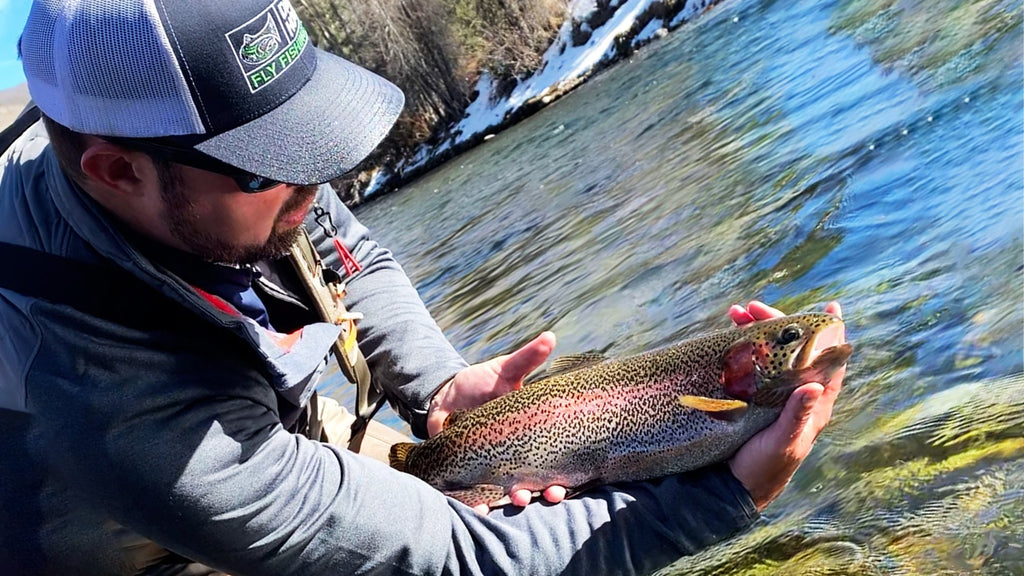
About the Author
Matthew Bernhardt, a third-generation Coloradan, grew up at the forefront of the state’s fly-fishing revolution, enjoying time on the water side by side with experienced guides and lifelong anglers.
By combining his passion for fly-fishing with input from other experienced fly-fishers and guides and his fine arts degree from Colorado State University, Matthew spent five years carefully developing the Drifthook Fly Fishing System, built to help every angler catch more trout.
When he’s not spending time with his wonderful family, you’ll find him out on the water catching MONSTER trout, and he anxiously looks forward to the day when his kids are old enough to join him there.

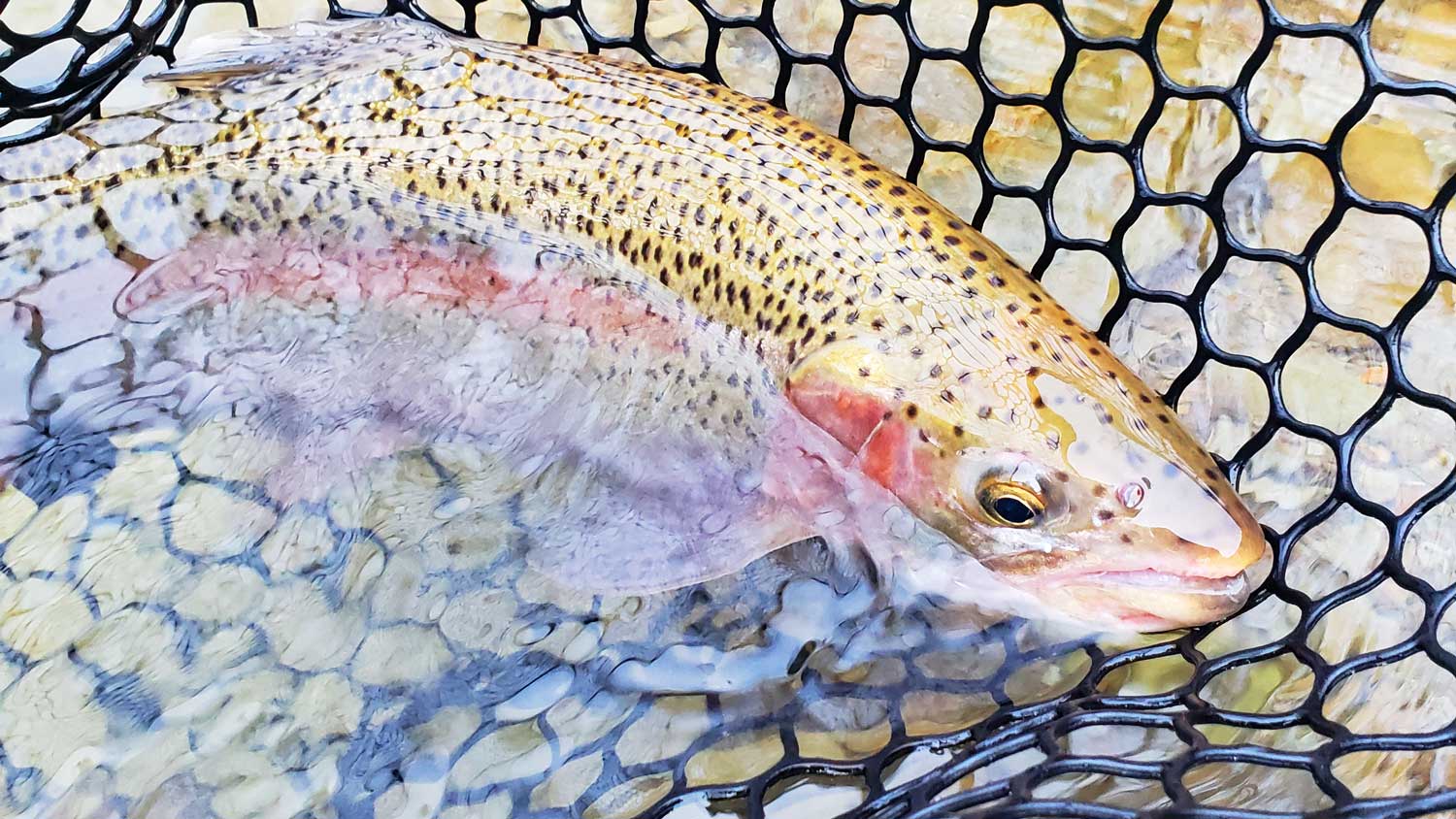


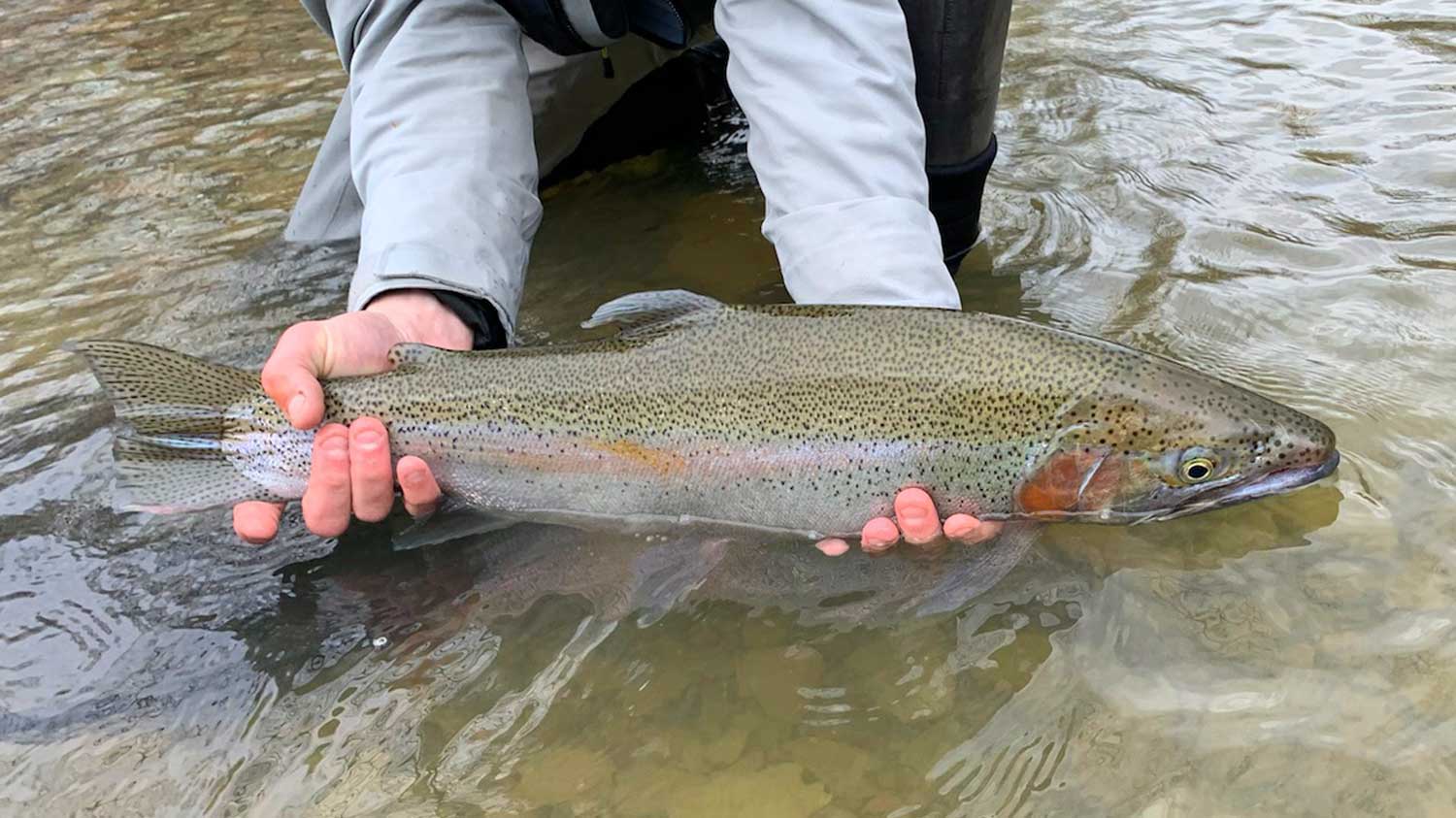
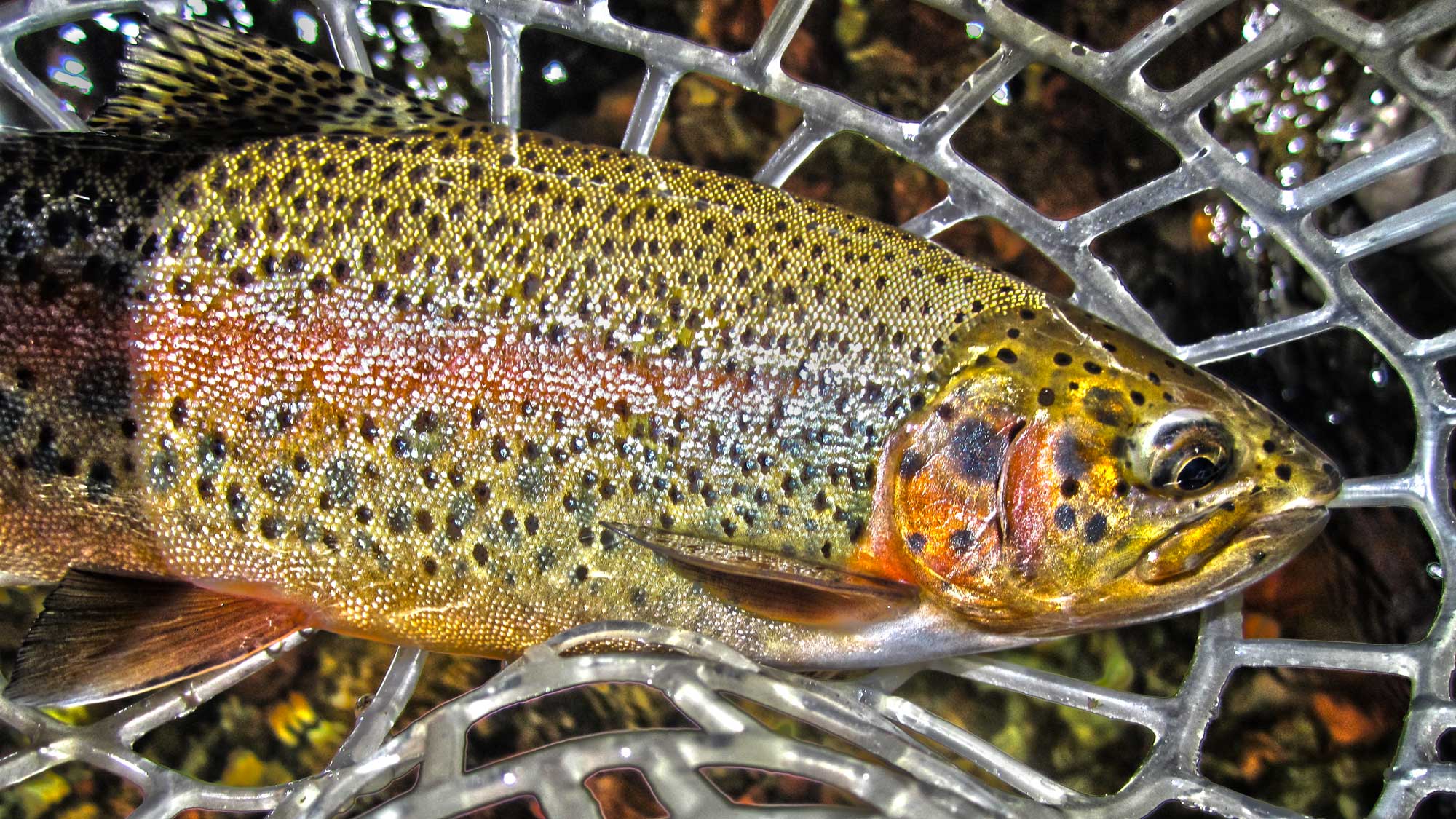
4 comments
Drifthook
Hello Leeana,
You make a very good point on the PFDs. I am an avid PFD advocate myself but also understand that awareness is also important. You must be able to understand the water before you should even attempt to wade it. You would be amazed how many people don’t even know how to swim. Thanks for your comment.
Hello Leeana,
You make a very good point on the PFDs. I am an avid PFD advocate myself but also understand that awareness is also important. You must be able to understand the water before you should even attempt to wade it. You would be amazed how many people don’t even know how to swim. Thanks for your comment.
Leeanna Young
Seriously? I scanned this article to find the mention of PFDs and didn’t. Wading belts help, but PFDs literally save lives. When will our fishing culture recognize going home at the end of the day is more important than looking cool on the water? Please publish this comment. We had two fly fishing vacationers drown yesterday morning in very nontechnical water. PFDs would have saved them.
Seriously? I scanned this article to find the mention of PFDs and didn’t. Wading belts help, but PFDs literally save lives. When will our fishing culture recognize going home at the end of the day is more important than looking cool on the water? Please publish this comment. We had two fly fishing vacationers drown yesterday morning in very nontechnical water. PFDs would have saved them.
Drifthook
Hello Keith,
Yes, some people think that because they are fishing that they are the only ones around. I see the same thing here in Colorado. I think we need to create an article on Fly Fishing etiquettecy as a lot of new fly fishers are not aware of the inappropriate behavior they might be doing on the water.
Hello Keith,
Yes, some people think that because they are fishing that they are the only ones around. I see the same thing here in Colorado. I think we need to create an article on Fly Fishing etiquettecy as a lot of new fly fishers are not aware of the inappropriate behavior they might be doing on the water.
Keith Salow
Sir,
I live on the Gulf coast in Florida. Recently, a man from Oregon was vacationing and decided to utilize the public beach for his flyfishing. He was slinging hooks in an approximate 40 ft. circumference both on the beach where vast numbers of people were walking and into the Gulf where some of us were trying to swim. I am hoping that you can provide me information or direction to such, regarding standard safe practice that flyfishermen should adopt in such an environment.
Thank you.
Keith Salow
Sir,
I live on the Gulf coast in Florida. Recently, a man from Oregon was vacationing and decided to utilize the public beach for his flyfishing. He was slinging hooks in an approximate 40 ft. circumference both on the beach where vast numbers of people were walking and into the Gulf where some of us were trying to swim. I am hoping that you can provide me information or direction to such, regarding standard safe practice that flyfishermen should adopt in such an environment.
Thank you.
Keith Salow